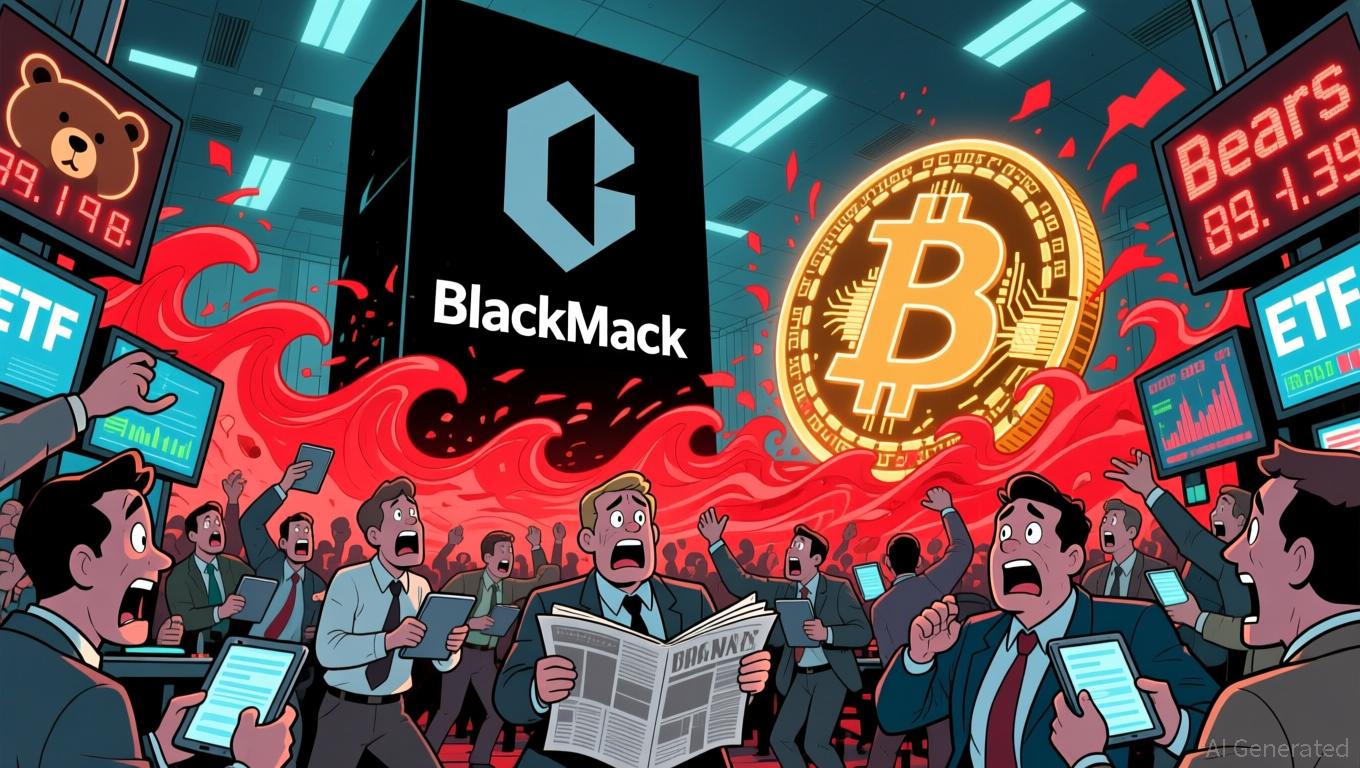Chainlink's cross-chain bridges drive a $35 billion boom in tokenized finance
- Grayscale files to convert its $29M Chainlink Trust into a staking-enabled ETF (GLNK), positioning LINK as crypto infrastructure. - Chainlink's CCIP bridges traditional finance and blockchain via cross-chain interoperability, recently collaborating with J.P. Morgan and Ondo Finance. - The tokenized assets market is projected to grow to $35B, with Chainlink addressing compliance and data transfer challenges in decentralized finance. - Strategic integrations with S&P Global and Bittensor's AI networks high
Chainlink (LINK) is described as "crucial infrastructure" for the rapidly expanding tokenized finance sector,
Grayscale places the current value of tokenized assets at $35 billion, expecting this number to rise as more institutions turn to blockchain for asset management, lending, and stablecoins. The company asserts that Chainlink’s suite of products—especially its Cross-Chain Interoperability Protocol (CCIP)—solves major pain points in tokenized finance by allowing smooth data and asset movement across different blockchains.

The analysis also points to Chainlink’s partnerships with leading financial institutions such as S&P Global and FTSE Russell, suggesting it is well-placed to benefit as traditional markets increasingly adopt blockchain technology. The report describes Chainlink as "the vital link connecting crypto with traditional finance,"
At the same time,
Grayscale’s ETF proposal could further reinforce Chainlink’s reputation as a core asset in the crypto space.
With institutional interest in tokenized assets on the rise, Chainlink’s capabilities in interoperability and regulatory compliance are likely to become even more significant. Grayscale projects that as the market has grown from $5 billion in early 2023 to $35 billion now, the need for Chainlink’s services will also increase. Nonetheless, the sector still faces hurdles such as uncertain regulations and competition from new cross-chain solutions.
Disclaimer: The content of this article solely reflects the author's opinion and does not represent the platform in any capacity. This article is not intended to serve as a reference for making investment decisions.
You may also like
Vitalik Buterin Backs ZKsync: Accelerating Ethereum’s Expansion and Advancing Layer 2 Solutions
- Vitalik Buterin endorses ZKsync's Atlas upgrade, highlighting 15,000 TPS, $0.01 fees, and bridging Ethereum's Layer 1/2 liquidity. - ZK Stack innovation reduces capital fragmentation while Airbender prover enables 2-GPU L1 block proofs, advancing Ethereum's scalability. - ZKsync now holds 15% Layer 2 TVL with 50% ZK token surge, but faces 60x performance gaps and competition from Arbitrum/Optimism. - Upcoming Fusaka upgrade targets 30,000 TPS by December 2025, while Kohaku privacy framework addresses ado
Investment Prospects in Layer 2 ZK Technologies After the ZK Atlas Enhancement
- ZK Atlas Upgrade (Oct 2025) boosts blockchain scalability via modular ZK solutions, enabling 15,000–43,000 TPS with $0.0001 per transaction costs. - Ethereum gas fees dropped 90%, TVL in ZK rollups hit $3.5B by 2025, with Deutsche Bank adopting ZK-rollups for institutional settlements. - Deflationary tokenomics drive capital efficiency: buybacks, burns, and staking rewards attract institutions, supported by $15B in Bitcoin ETF investments. - Analysts project 60.7% CAGR for ZK Layer-2 solutions, reaching
ZEC rises 6.32% in 24 hours as Hyperliquid holds a $19.35M long position
- ZEC surged 6.32% in 24 hours to $538.2 on Nov 22, 2025, despite a 9.7% weekly drop, with 36.25% monthly and 879.76% annual gains. - A $19.35M ZEC long position on Hyperliquid (5x leverage) shows $3.5M unrealized gains, highlighting institutional bullishness amid price volatility. - The leveraged position underscores amplified risks/rewards, with narrowing gains signaling market uncertainty and the need for cautious monitoring of macroeconomic/on-chain trends.

Bitcoin Updates: Billions Flow Out of Bitcoin ETFs While Stablecoins Strengthen as Core of Finance
- BlackRock's IBIT Bitcoin ETF recorded a record $523M outflow, pushing November's total U.S. spot Bitcoin ETF redemptions to $2.96B amid Bitcoin's 30% price drop. - Analysts link the exodus to weak fundamentals and macroeconomic uncertainty, with ETF outflows and long-term holder sales tightening liquidity and eroding investor confidence. - BlackRock filed for an Ethereum staking ETF as stablecoins surge in cross-border finance, processing $9T in 2025 payments while Bitcoin ETFs face sustained outflows an
